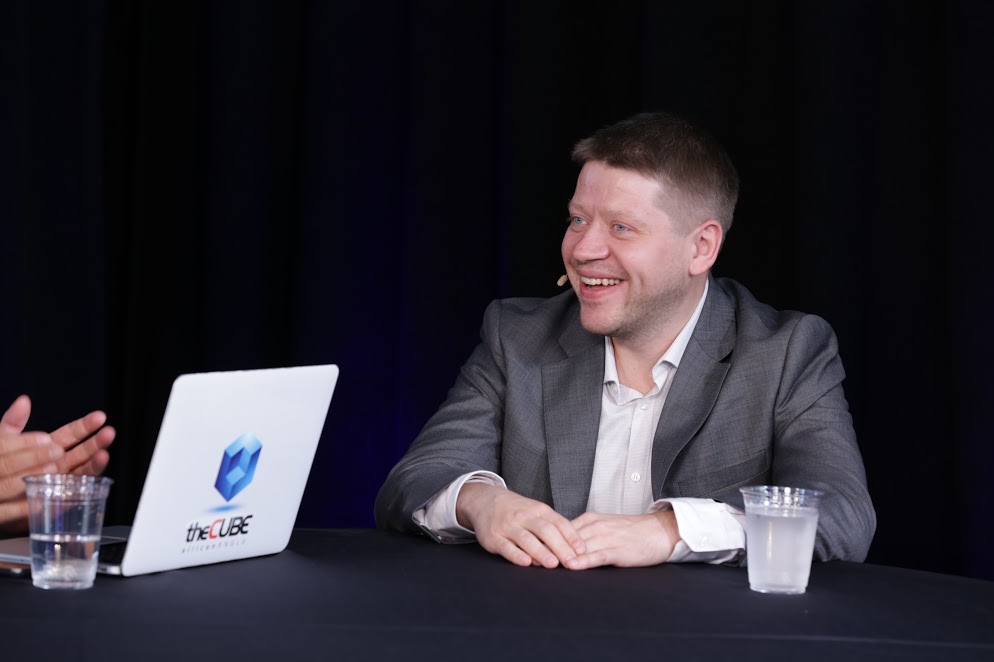 BIG DATA
BIG DATA
 BIG DATA
BIG DATA
 BIG DATA
BIG DATA
Data science has made rapid advances in automated understanding of spoken or written text. It’s now possible to take mountains of data from customer feedback, for example, and gain high-level insight into whether a business might soon experience a retention problem. But a new challenge will involve training computers to achieve the same level of predictive accuracy through analysis of digital images or videos, and one company is beginning to see growing demand for this cutting-edge technology.
“We have recently been getting some requests where computer vision skills are required. Computer vision is going to be the next leap in all the AI buzz that we’re having at the moment,” said Sergei Rabotai (pictured), head of business development at InData Labs.
Rabotai visited the set of theCUBE, SiliconANGLE’s mobile livestreaming studio, and spoke with host John Furrier (@furrier) during the recent BigData NYC event in New York City. They discussed advances in predictive analytics and the favorable climate for technology innovation in Eastern Europe. (* Disclosure below.)
There are already signs within the past year that the pace of development in computer vision tools is picking up. Google Lens is a new feature from the search giant that lets a user point a smartphone at an object, such as a flower or restaurant, and receive information about it immediately. InData created an interactive map of Hong Kong that provided location-based insights derived from analysis of more than 1.5 million Instagram posts.
“We identify the ways that data science can be implemented and provide benefits to the business,” Rabotai said. “That’s what’s most important.”
Based in Belarus, InData has been taking full advantage of the technical talent and tax-supported initiatives found among many countries in Eastern Europe. These include incentives such as exemptions from value-added or corporate income taxes and personal tax relief for tech company employees. “I can definitely say that there’s no country in the world that has the same tax preferences and the same support from the government,” Rabotai said.
As a big data analytics company, InData has built its expertise in extracting significant amounts of intelligence from a user database. The firm’s technology has been applied to use cases such as a health app developed recently for the U.S.-based digital company OWHealth Inc.
“In the U.S., U.K. and Nordic countries, they have a strong background for creating business ideas,” Rabotai said. “But Eastern European countries, and Belarus in particular, are very strong in actually implementing those ideas.”
Watch the complete video interview below, and be sure to check out more of SiliconANGLE’s and theCUBE’s coverage of BigData NYC 2017. (* Disclosure: InData Labs sponsored this segment of theCUBE. Neither InData nor other sponsors have editorial control over content on theCUBE or SiliconANGLE.)
THANK YOU